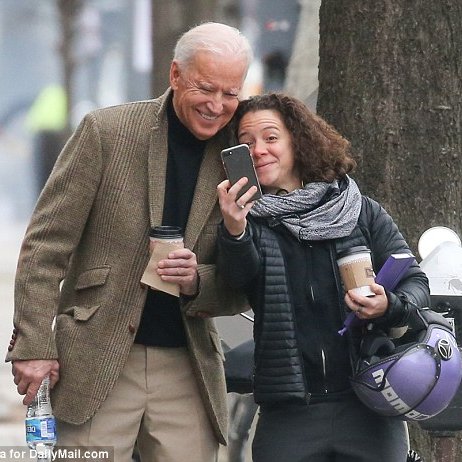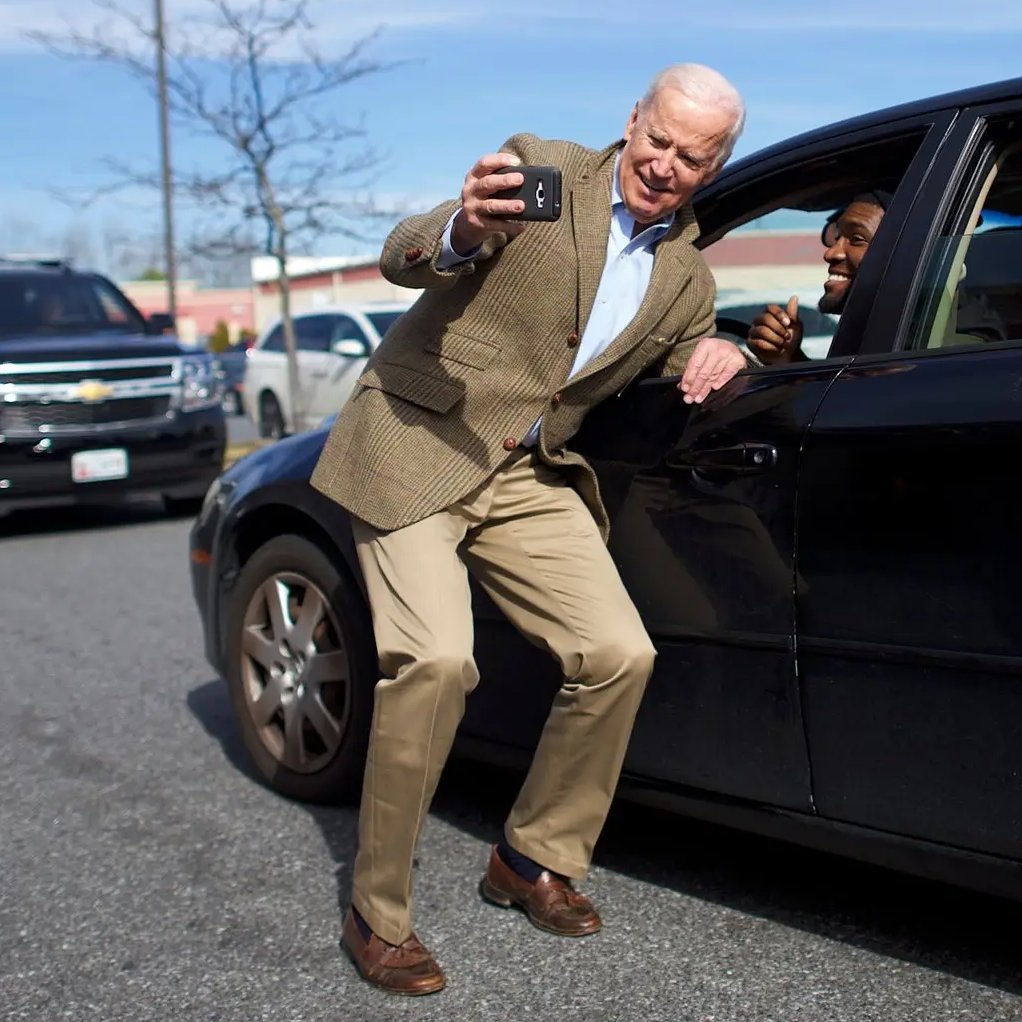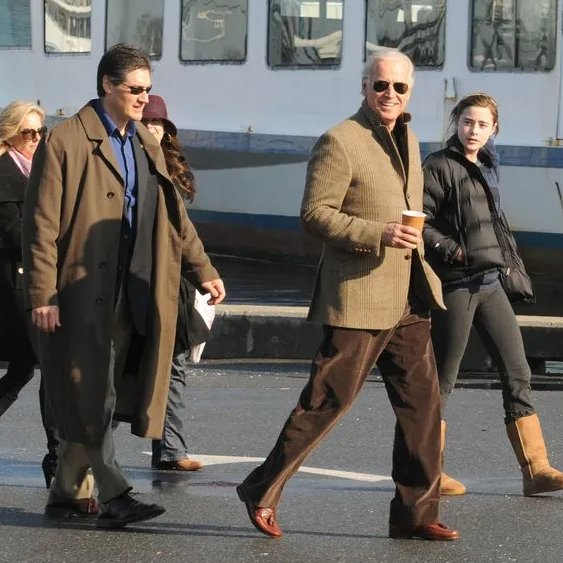BUILD A WARDROBE; DONT BUY OUTFITS
sometimes i dont know if im saying things are too obvious, but you should buy clothes that easily mix and match. that way, you can buy a handful of items to create an infinite number of outfits 🧵
sometimes i dont know if im saying things are too obvious, but you should buy clothes that easily mix and match. that way, you can buy a handful of items to create an infinite number of outfits 🧵

an easy way to do this is to build a wardrobe around one or two aesthetics that easily play with each other. for instance, rugged workwear items draw from the same design language, so they work together.








similarly, if you normally wear things like suits and sport coats, you can get certain casual jackets that pair well with tailored trousers (pic 1, 2, and 3). but something too avant-garde (pic 4) requires different types of shirts and pants to create the right silhouette/ look








it also helps to stay within a tight color family. in menswear, blues, greys, browns, and olives play well with each other. if you like tailoring, get a wardrobe full of grey and tan pants, solid or striped blue shirts, and then a couple of sport coats. coordinating is then easy


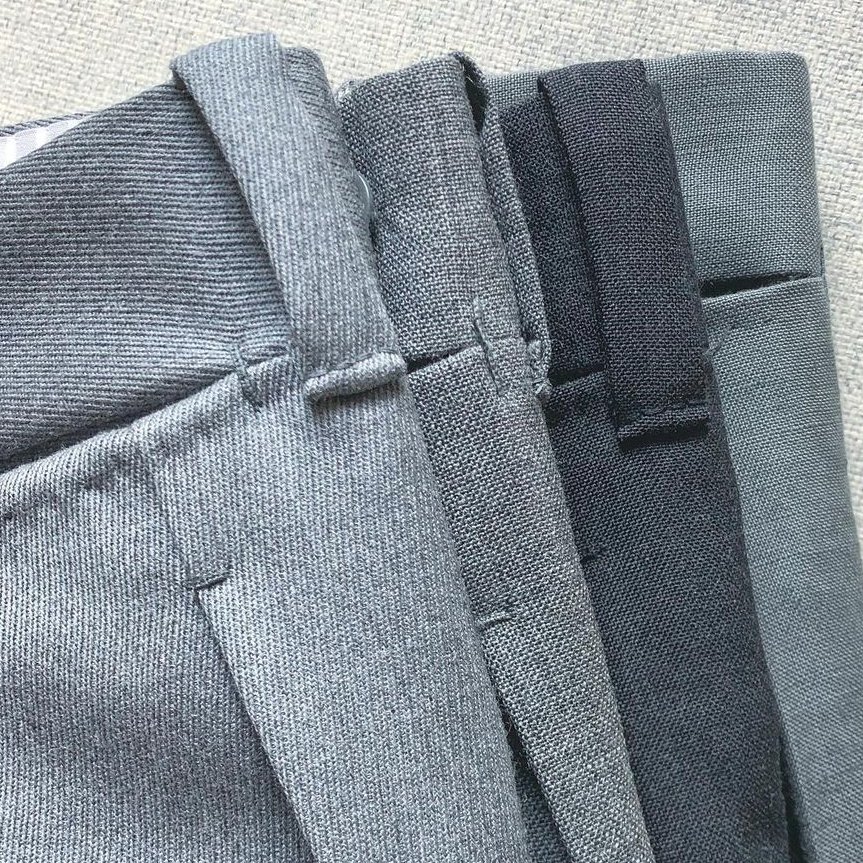
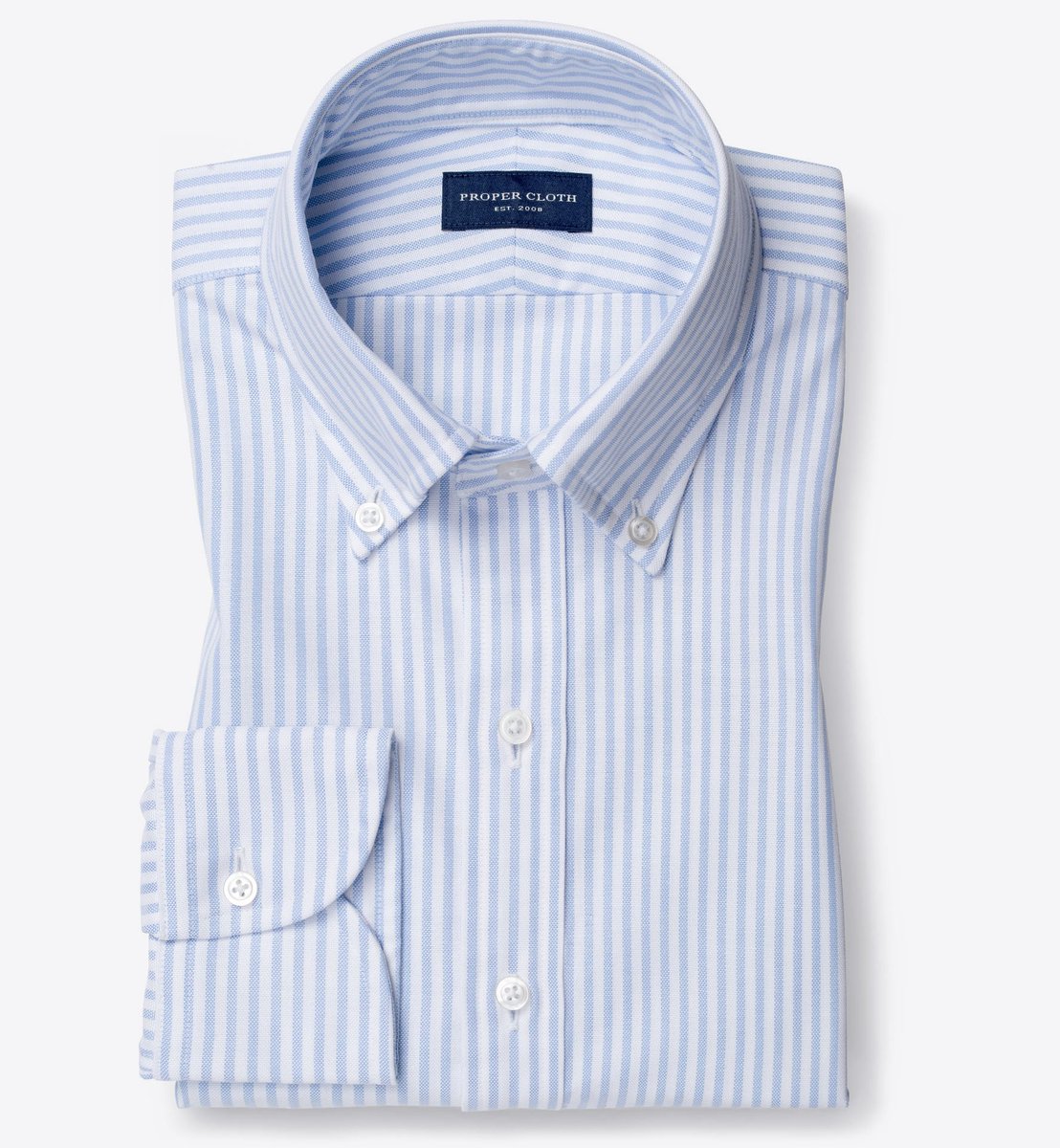
my friend @DavidLaneDesign, who i mention often on here, mostly wears tailoring and workwear. dark jeans go with sport coats (blue hopsack or brown tweed) or casualwear (brown suede chore coat or olive field jacket). even light blue chambray transfers.




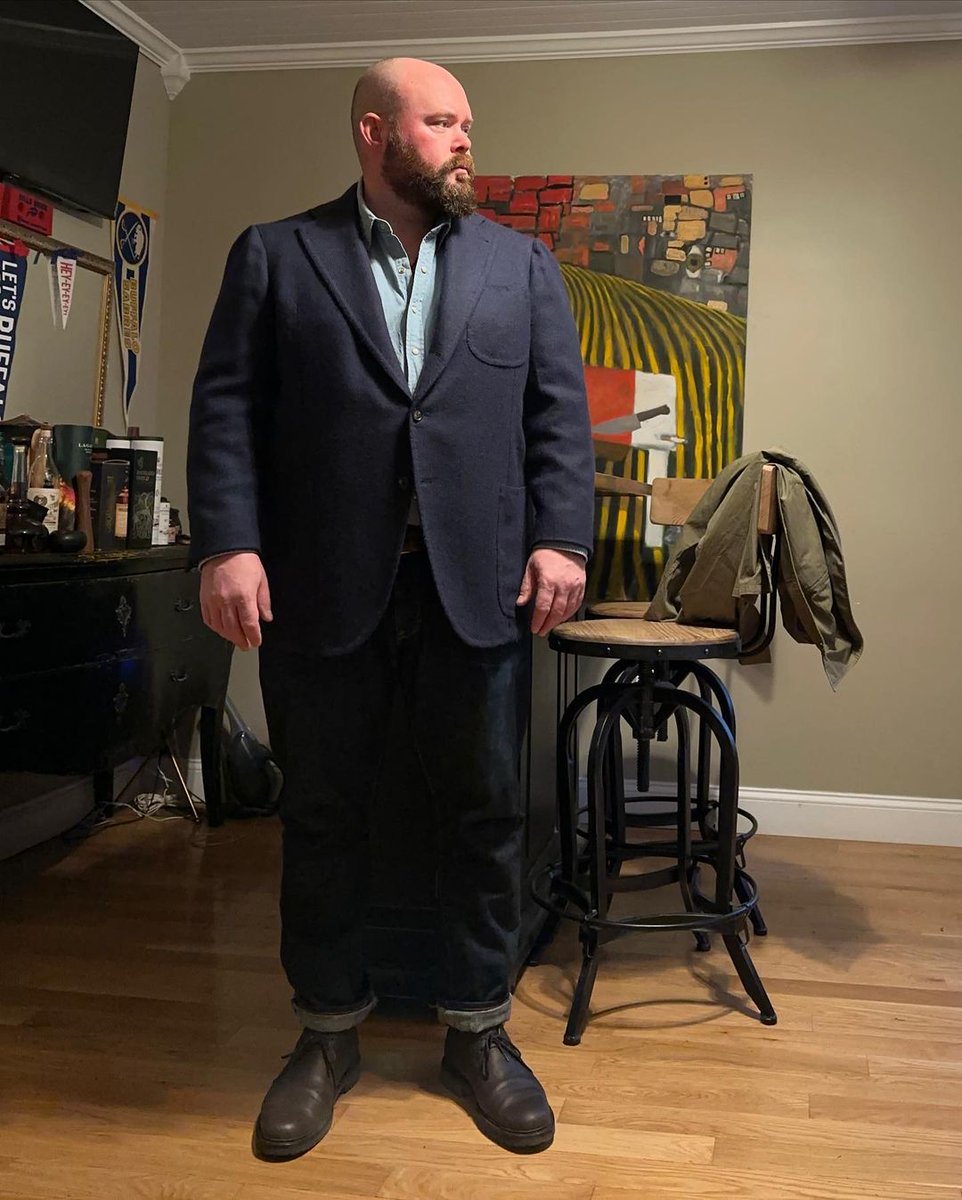
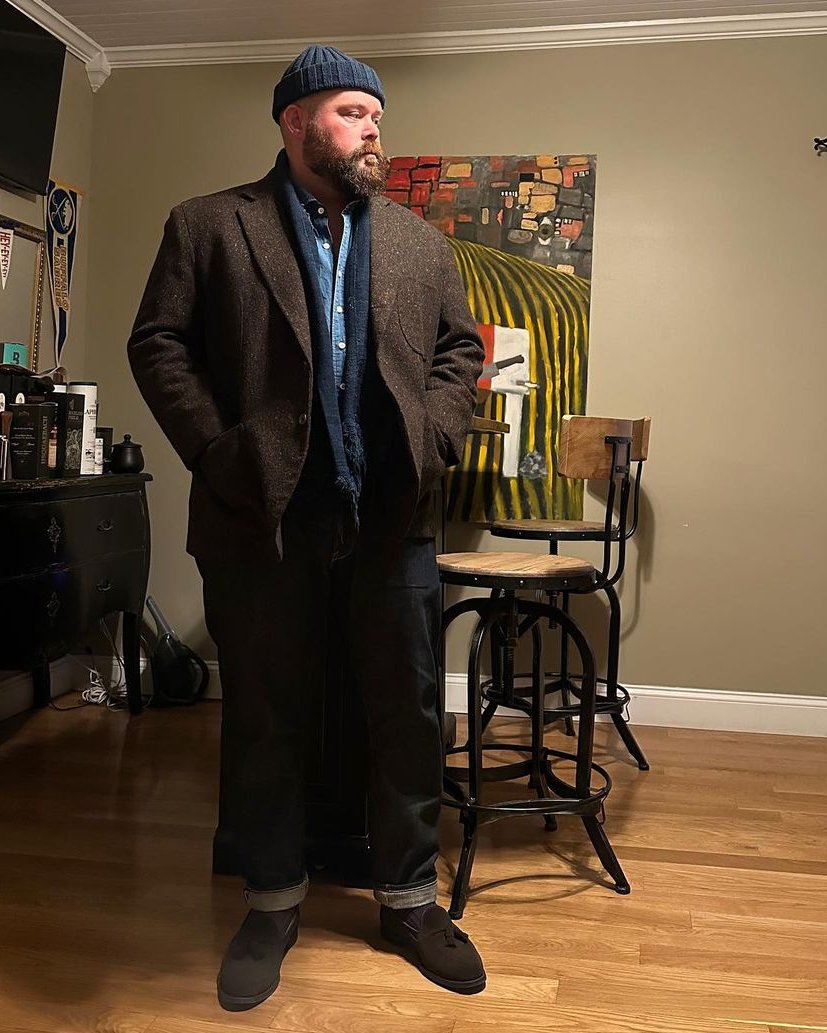
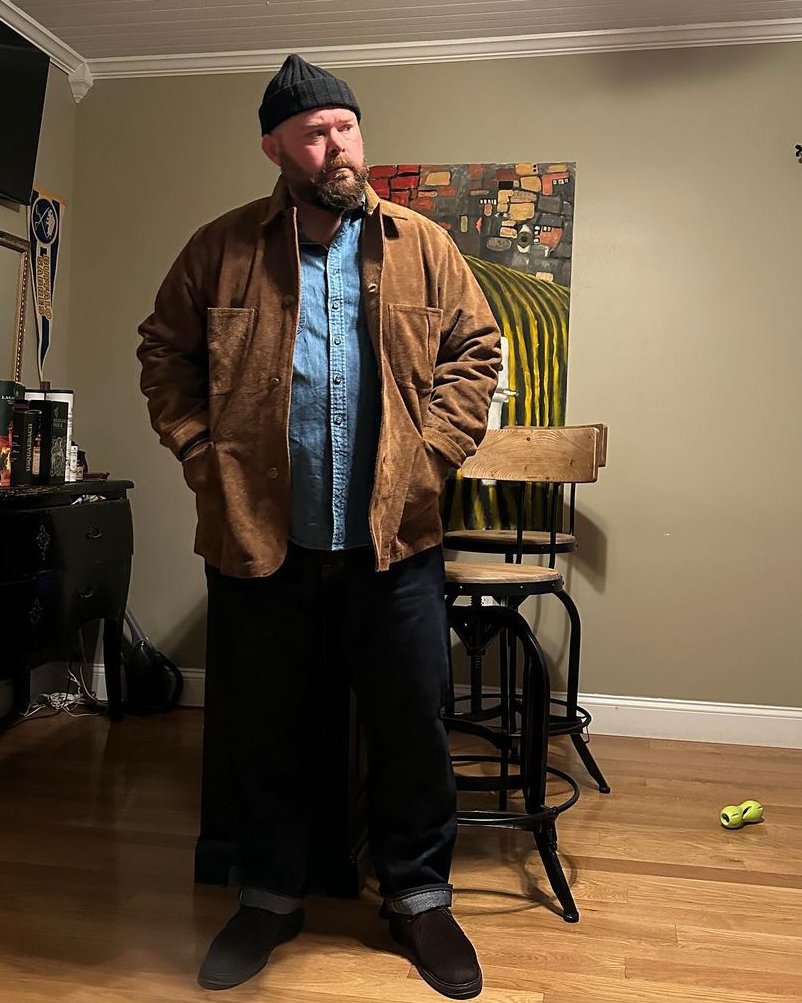
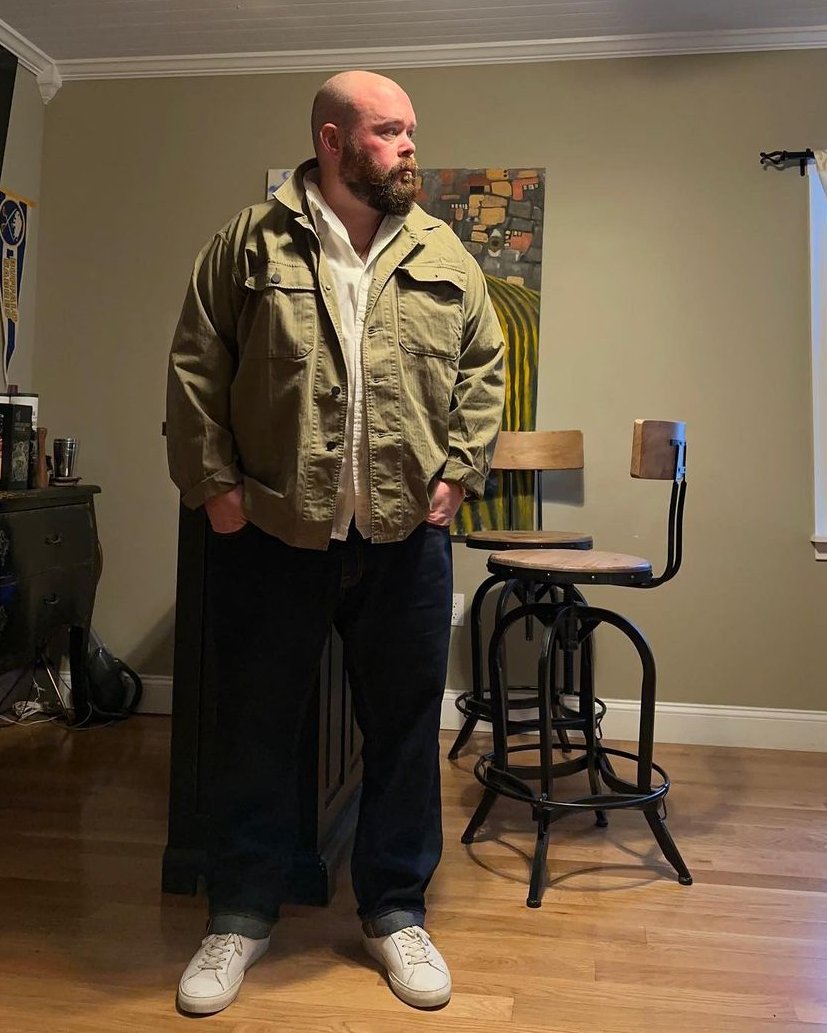
in this way, you can see how two adjacent aesthetics (tailoring and workwear) play well with each other. and by staying within some basic colors (e.g., blues, browns, olives), it's easy to coordinate. same pants, shirts, and sometimes shoes, but different jackets and thus outfits
about ten years ago, i interviewed a young guy in paris named brian. like most homes around the world, parisian apartments are small—tiny compared to US homes—so they have limited storage space. yet parisians are among the best dressed in the world.
when i interviewed Brian, he had two pairs of jeans, one pair of trousers, two sweaters, two pairs of boots, one pair of sneakers, some shirts, and a handful of coats. yet, everything could be mixed and matched, so he could create an infinite number of outfits




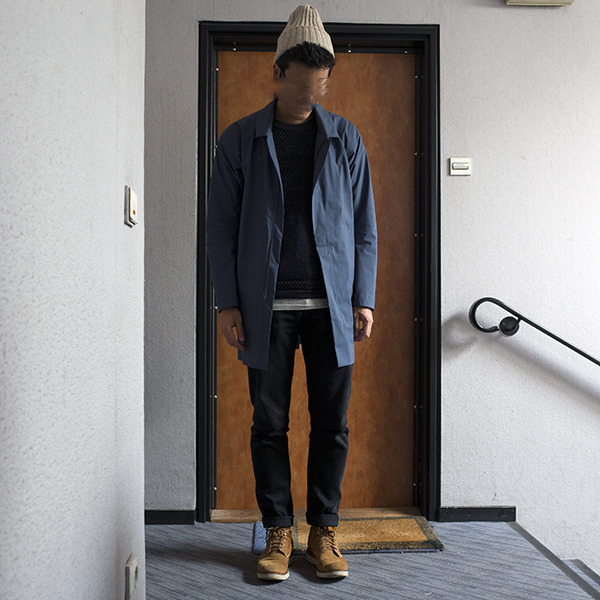
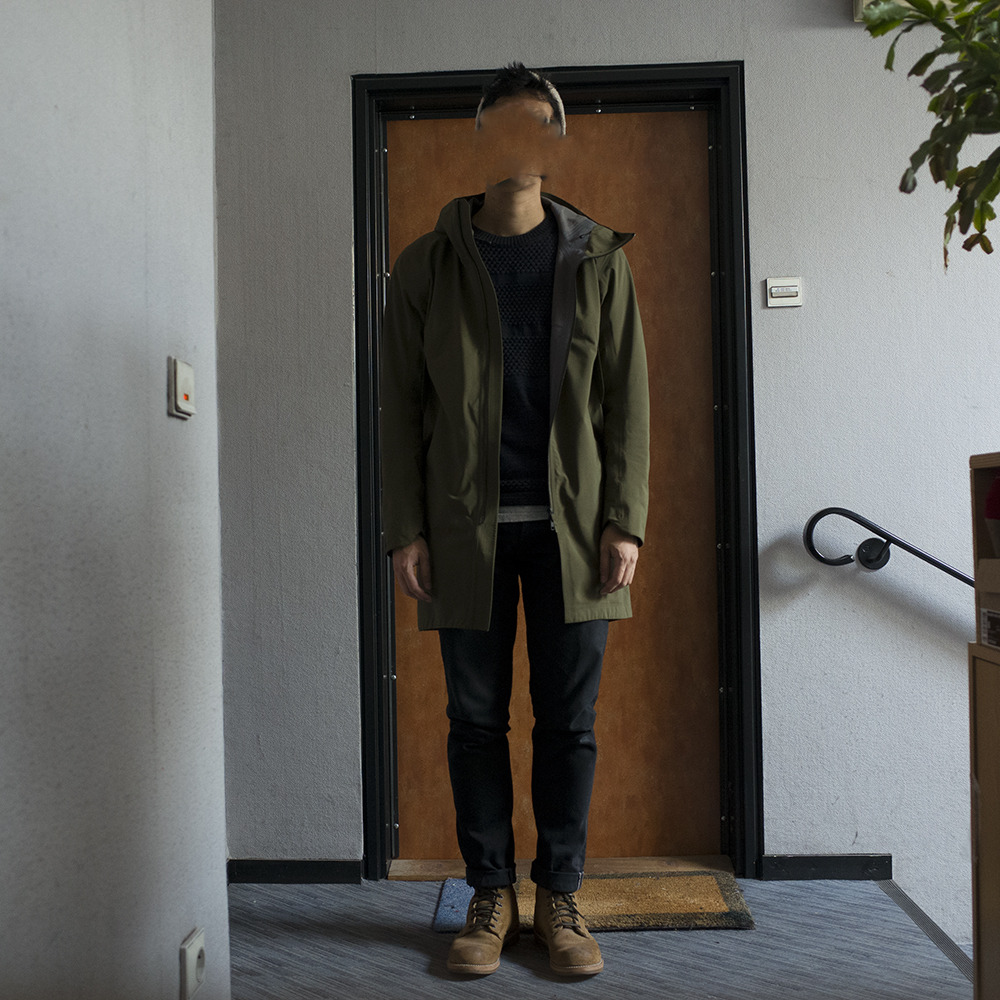
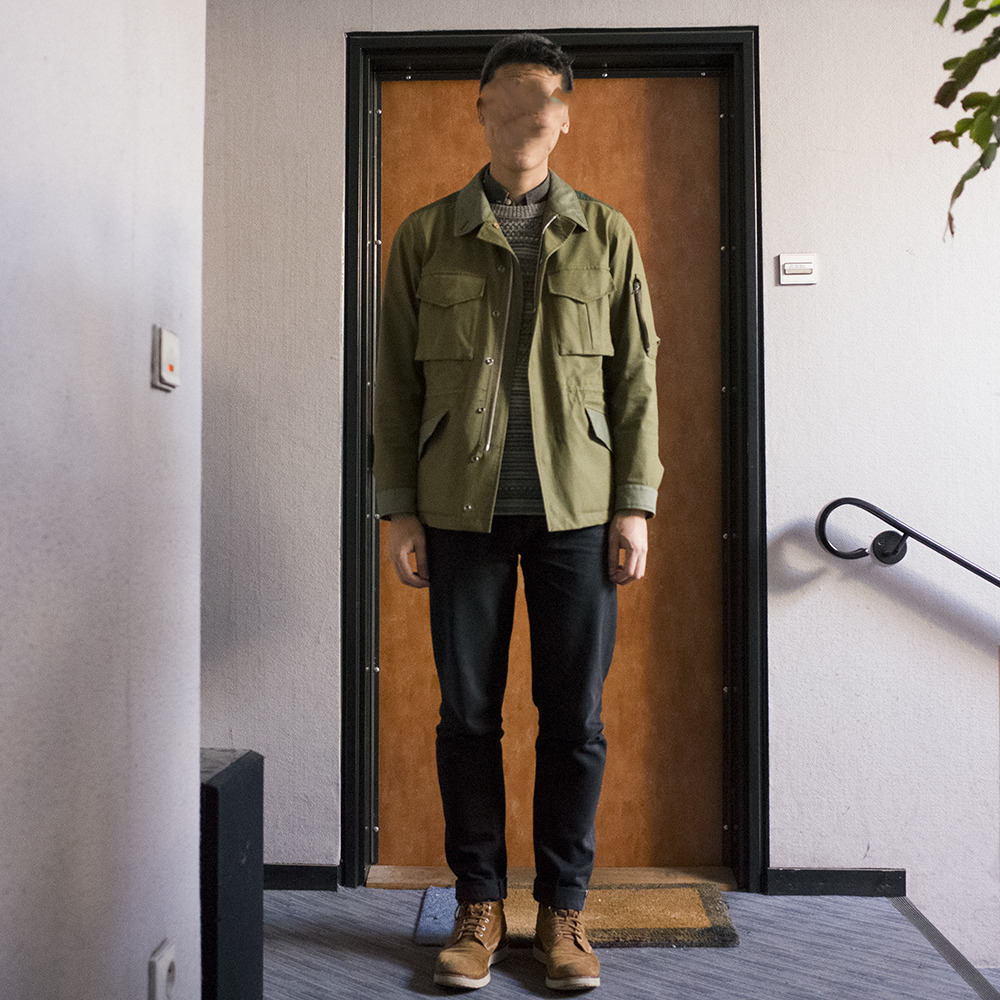
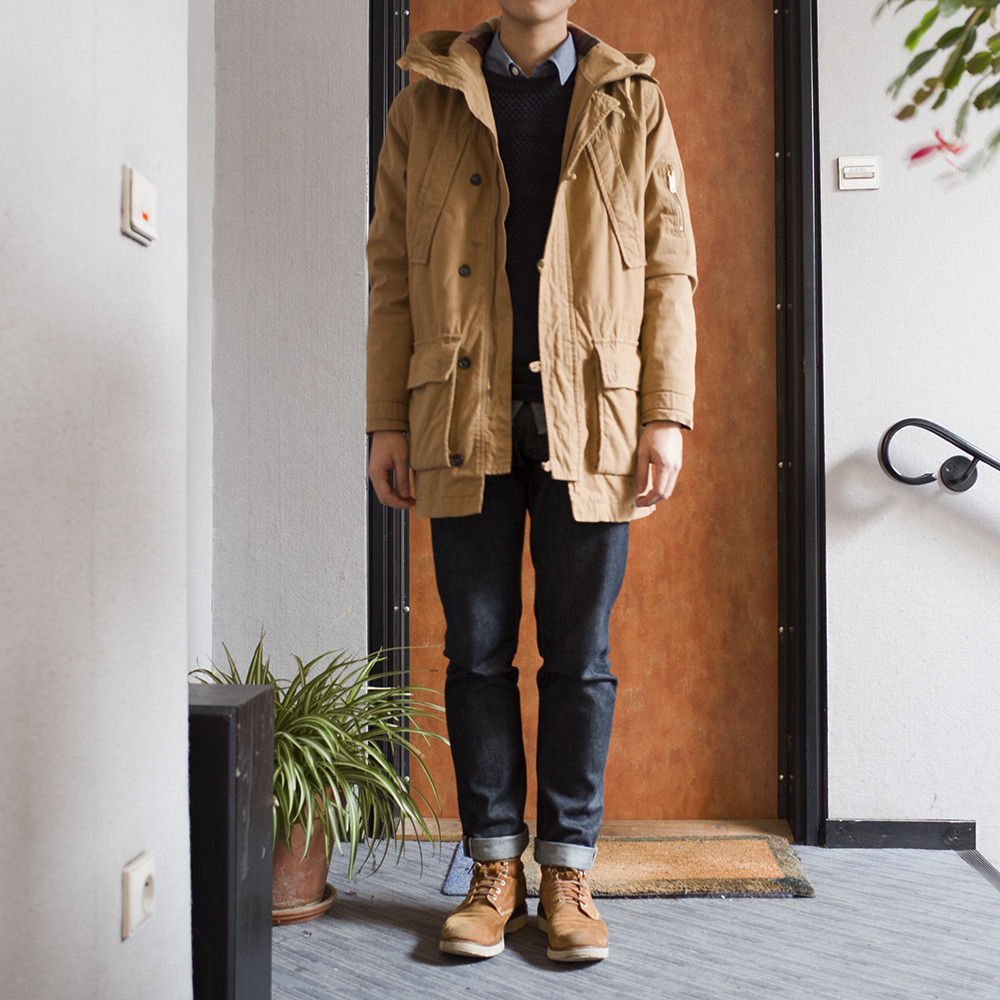
sorry if all this is very obvious. but i get this sort of reply often ("are you seriously recommending a $200 outfit?"). you do not buy outfits. you slowly build a wardrobe over a long period of time, and from that wardrobe, you mix and match things to create outfits. 
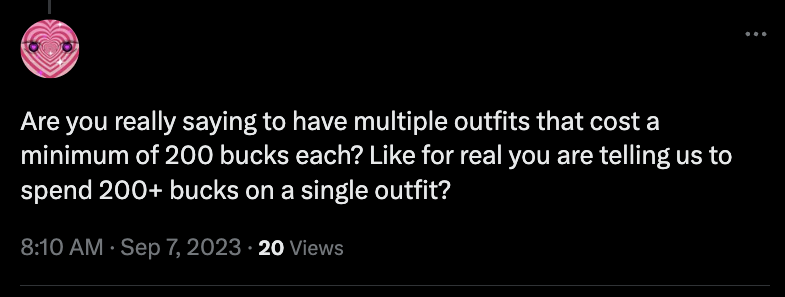
fighters during the communist revolution: does your outfit cost $200? up against the wall, capitalist!
me: no no, I've built my wardrobe so these items can be easily mixed and matched
me: no no, I've built my wardrobe so these items can be easily mixed and matched
• • •
Missing some Tweet in this thread? You can try to
force a refresh

 Read on Twitter
Read on Twitter




